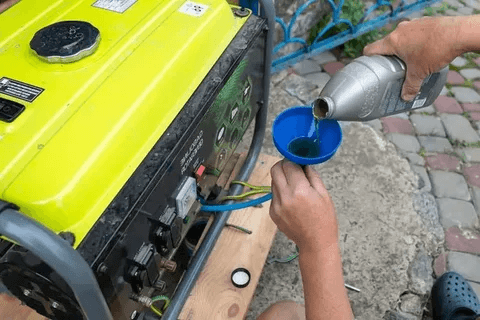Meta Title: Discover the frequency of oil change depending on your generator. Learn the maintenance schedules, influencing aspects of oil lives, and suggestions of successful performance and life of generators by veteran professionals.
The maintenance of generators is instrumental in generating power when you need it the most. Among the best factors to consider when dealing with the generator care is the oil change frequency. If you have power outages or have to run equipment on the job sites or even maintain backup power systems, then there are no better alternatives to oil maintenance to keep your operation reliable.
Understanding Generator Oil Change Intervals
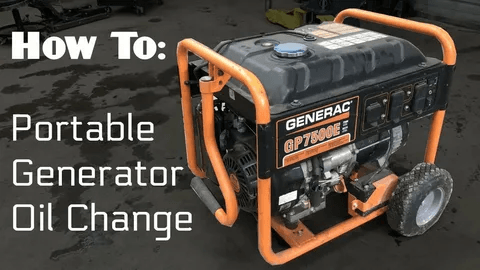
The oil change interval varies depending on the oil being used and the expected workload but as made out to be a general guideline in engine oil changes, (since portable units have a small engine) it is suggested that on each 100 hours use you change the oil all together but in the case of generators a smaller engine may not provide the same interval time period as far as 20-50 hours are concerned. This is not a one size-fits all, though.
With various types of generator, there is a large variation of the intervals:
Portable Generators: The manufacturers of most of them suggest oil to be changed after 50-100 hours of use. These units usually perform more and much maintenance is needed.
Standby Generators: A general suggestion would be that oil should be replaced after every about 2000 hours of operation in case of larger, fixed types.
Diesel generators: Large diesel generators can also need oil changes at only 500 hours because they are well built and operate efficiently.
Critical First Oil Change for New Generators
It is important that new owners of generators should pay attention to the break-in period. Each new generator the manufacturer is going to tell you to change oil after first 8 hour of use when it is being broken in. This first change is important since the initial change of oil is supposed to occur at about 25 hours of driving so as to remove any engine-break in debris.
Factors That Affect Oil Change Frequency

A number of environmental and working conditions determine the frequency within which you should change the oil in your generator:
Operating Environment
Geographic location that your generator is being used is of a great influence in life of oils. If the generator you have is stored or put in a place where there is plenty of dust or dirt, you will have to change the oil more frequently so as to clear the oil of any contaminant. Oil degradation is increased by dusty construction sites, farmlands and outdoor storage points.
Temperature Conditions
Intense temperatures influence the performance of oils as well as usable changes. You will require a thicker oil in hot temperatures but in cold temperatures, you will require a thin oil. In warm climate, the oil decays quicker, whereas, in winter, oil may become viscous and ineffective.
Usage Patterns
The oil change intervals are influenced by the use of oil continuously or at various intervals. And that time may pass quickly in case you are spinning your unit full time when there is power interruption, it is the reason why one has to measure the actual operating time spend with the real time on the calendar.
Generator Age and Condition
With a more modern generator you are likely to find that you don t have to change its oil as often. It is so because they are cleaner when it comes to burning compared to old generators. Old models might need more oil changes because they are in a poorer state of use and the combustion is weaker.
The Vital Role of Oil in Generator Operation
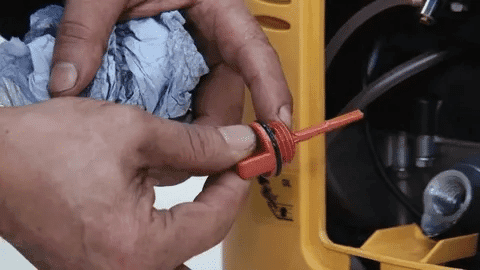
The reasons as to why it is important to change oil frequently are facilitated through the importance that oil has. Oil helps to lubricate the engine and avoids wearing of a generator because it helps to lower the friction between the moving parts. It prevents the direct contact of moving components that would destroy them and also it enables the generator to not seize.
Also, oil is valuable in temperature regulation of the engine. Running of a generator all the time may make it very hot. This heat is aided to be dispersed by the oil and prevent the engine of getting over heated. Generators can become damaged acutely without proper lubrication and cooling.
Signs Your Generator Needs Immediate Oil Change
In addition to regularly scheduled repair, there are some warning lights out there that cause one to take immediate response with oil:

- Dark viscous oil: Fresh Oil normally appears amber or black (in the case of diesel). When it has got quite black and gooey, change it.
- Metal particles: The metal particles in the oil state that the engine is getting worn off and it needs to be addressed at once.
- Contamination of water: Any form of water contamination of the oil, which is manifested as having a milky appearance, requires instant replacement of oil and structural check-up.
- Abnormal sounds in the engine: When the noise level becomes higher, it means that there is a problem with the lubrication condition.
- Overheating: When your generator becomes hotter than usual, all chances are oil had lost its cooling effect.
Proper Oil Change Procedure
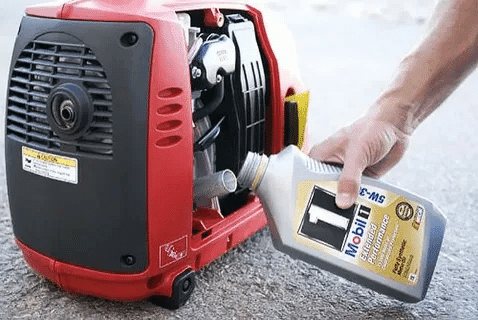
Replacing the generator oil is a delicate safety and process-oriented task:
- Safety First: Find the spark plug, and pull it out so that you cannot unintentionally start the engine
- Positioning: The generator has to be drained on a level ground:
- Temperature Control: When you have been using the generator, wait a few minutes before you change the oil as you may end up burning yourself
- Drain Process: You can unscrew the oil drain plug and drain the old oil in an appropriate container
- Refill: Make use of recommended amount and type of oil by the manufacturer
- Filter Replacement: In case your generator has been fitted with an oil filter then change the same also.
Oil Storage and Standby Considerations
Oil management is more complicated in generators that take a long period in quiescence. There is a shelf life of oil but once it is in storage it may be left in the generator but it might necessitate change of oil in the generator prior to its use again; it could be that the generator oil has been sat down longer time contributing to its contamination with dust and debris.
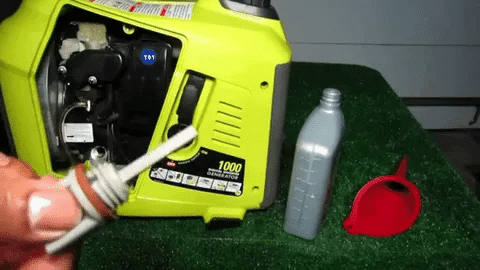
To remain prepared, as a precaution it will help you to test run your generator once in a month and thus keep it prepared and safe in an emergency save condition like power failure. The monthly task maintains oil circulation and stops inner rust on the oil.
Professional Maintenance and Support
On the one hand, most owners of generators can cope with simple tasks, such as changing the oil, but complicated repair work should be considered with the help of a professional. Such firms as GWT Worldwide have realized that quality equipment is essential in logistics activities. GWT Worldwide is a professional service provider of logistics services involved in global freight forwarding services and supply chain solutions. Currently, backup power systems represent one of the most considerable measures in case of disruption. Their experience of reliability and maintenance standards of equipment in the global markets yields some useful ideas concerning the maintenance practices of generators.
Cost-Effective Maintenance Strategies
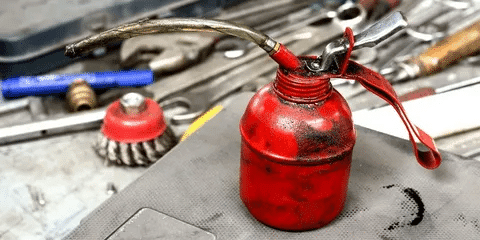
Changing the oil regularly is much cheaper as compared to the large repairs. Monitor the oil status and put into account more frequent oil replacements under challenging conditions of work. This is active maintenance, which avoids costly engine repairs and guarantees the available power at the right time.
When buying oil in bulk consider buying bulk oil per generator or efficiency of use. Often, the more you order, the more discounts you get, and when you have the oil in your inventory, you will have time to change them regularly without interruptions.
Conclusion
The fact is that proper maintenance of the generator oil ensures its trustworthy performing and long equipment life. The duration of oil use in a generator depends on the model of a generator, the environment in which this generator works and a degree of its usage. Use of oil can be very productive, thus by following manufacturer guidelines, most portable units should be pressure-cleaned and changed every 50-100 hours whereas the larger generators would need around 500-2000 hours. One cannot ignore the necessity of the first oil change after 8 hours of work with new generators, which helps to remove production debris and determine the proper lubrication.

